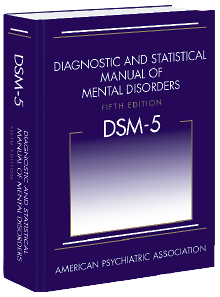Claims for some 40 diagnostic codes submitted by psychiatrists and other mental health practitioners participating in the Medicare Part B program in 12 states and Washington, D.C., will no longer be denied, after the Medicare carrier in those states—responding to APA advocacy on behalf of clinicians—updated its Local Coverage Determinations (LCD) to include the codes.
Moreover, claims submitted by practitioners on or after December 31, 2015, that had been denied will be retroactively approved and paid.
The affected states are Arkansas, Colorado, Delaware, Louisiana, Maryland, Mississippi, New Jersey, New Mexico, Oklahoma, Pennsylvania, Texas, along with the District of Columbia and three areas in Virginia: Arlington and Fairfax counties and the city of Alexandria.
In response to concerns expressed by APA leadership, Novitas, the Medicare contractor for those states, agreed to update its LCD to include ICD-10 codes that correspond to DSM-5 diagnoses for more than 40 conditions, including some of those most commonly used by psychiatrists—alcohol dependence, major depression, bipolar disorder, anxiety disorder, schizophrenia, and posttraumatic stress disorder.
(An LCD is a determination by a fiscal intermediary or a carrier under Medicare Part A or Part B with respect to whether or not a particular item or service is covered. The list of the diagnoses for which services were previously being denied and will now be covered is posted on APA’s website at psychiatry.org/CodeCoverage).
The failure to cover services for these diagnoses has affected thousands of psychiatrists and other practitioners who in turn have alerted APA, the National Council on Behavioral Health, and state behavioral health organizations—some of them saying that the denials have threatened the financial viability of their practices. In other cases, the denials have affected patient access to care because prospective patients have had to be warned that they may need to pay out of pocket.
The problems experienced by psychiatrists and others submitting codes for the disorders in the 12 states and District of Columbia has to do with the level of specificity required in ICD-10. Users of ICD-10-CM are generally required to select diagnostic codes at the maximum level of specificity to get their claims paid; if a subtype or specifier is reflected in the diagnostic code, the user is obligated to indicate it.
Because the mental disorders section of ICD-10-CM was originally developed in the mid 1990s to correspond to the structure of DSM-IV rather than DSM-5, coded subtypes that appeared in DSM-IV but were dropped for DSM-5 have resulted in the diagnostic codes of a number of DSM-5 diagnoses not being accepted by some payers for reimbursement, despite the fact that they are valid ICD-10-CM diagnostic codes.
In a March 18 letter to Novitas Contractor Medical Director Debra Patterson, M.D., APA CEO and Medical Director Saul Levin, M.D., M.P.A., outlined the difficulty that mental health professionals using DSM-5 have had with meeting the specificity requirements.
“DSM-5 intentionally used less specific codes in some cases, based on the state of the current scientific evidence,” Levin wrote. “The experts in the field who updated DSM found evidence that, for some disorders, providing higher levels of specificity confused the diagnoses or decreased their validity.
“For example, when DSM-5 was created, the experts removed the schizophrenia subtypes because there was evidence that subtyping schizophrenia muddies the validity of the diagnosis, as the types (such as ‘paranoid,’ ‘delusional’) tend to overlap and shift over time. A similar decision was made for posttraumatic stress disorder (PTSD). It was shown that differentiating between acute and chronic confused the diagnosis. Therefore, the codes that are listed in DSM-5 translate to what are currently called in ICD-10-CM ‘Schizophrenia Unspecified’ and ‘PTSD Unspecified’, respectively.
“These unspecified codes, based on the state of the science, are at the highest level of specificity to which one should code them,” Levin told Novitas. “Several other states as well as the Veterans Health Administration cover the disorders as they are listed in DSM-5.”
He added, “The lack of inclusion of these codes in Novitas’ LCD is causing serious problems for behavioral health providers and their Medicare patients who are not being reimbursed for the medically necessary care they receive, care that was covered before ICD-10’s implementation.”
In addition to some of the most common diagnostic codes not being reimbursed because of the issue of specificity, there were also a number of other, less common diagnostic codes that were not listed in the Novitas LCD (and hence were going unreimbursed) for no known reason. “This problem can be corrected by adding the ICD-10 codes identified in DSM-5 to the diagnoses for which psychiatric care is covered in the LCD,” Levin wrote.
In late May, Novitas announced it had updated its LCD and would cover these codes retroactively from the time the policy was enacted on December 31, 2015. This means that any Medicare claims that were submitted and rejected for the affected diagnoses on or after December 31 will now be accepted.
“This is an example of how APA, working with providers in the field, is able to protect the interests of our members,” Levin told Psychiatric News. “We will continue to work with Medicare carriers in all states to ensure timely payment of claims. And we encourage members to contact APA staff with problems or questions they may have about payment of Medicare claims.” ■
APA members with questions about coding, reimbursement, and practice management may contact the APA Practice Management Helpline at (800) 343-8671.

